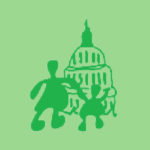Washington Parent Reader Shares Exciting New Information
Our editors at Washington Parent magazine were pleasantly surprised to hear from one of our readers, a parent living in Prince George’s County. Responding to an e-mail blast we sent out on the availability of Montessori options in the D.C., MD, VA area, reader Alice Ewen wrote to us, both informing and surprising us with her information about the existence of public Montessori schools.
Ms. Ewen praised her son’s school, Robert Goddard Montessori, in Seabrook, MD, and encouraged us to let parents know that public Montessori schools are a great option for parents who may want to try something different than their local boundary public schools. She wrote: “One reason it is worth educating parents about these [public Montessori] schools is that it is possible to transfer into them if your child has previously been enrolled in a Montessori school … so it’s a viable option for some families who may do private pre-school in Montessori and then try to transfer into an empty spot in a public Montessori.”
Here at Washington Parent, we were giddy with this information! It was almost as if we had turned over some topsoil and discovered a brand new species of worm, except, upon further research, we learned that the worm is more common than we thought!
According to the USA Montessori Census, a service provided by the National Center for Montessori in the Public Sector (NCMPS), there are public Montessori schools in our area as follows: Virginia – 13, Maryland – 6, District of Columbia – 8. There are also three times as many private Montessori schools in each area! (montessoricensus.org)
Private Versus Public Montessori Schools
Our metropolitan area has seen the growth of private Montessori schools for many years. We know that all private Montessori schools are affiliated with official Montessori organizations, and some require their students to wear uniforms. Thanks to Ms. Ewen’s e-mail, we now know that public Montessori schools exist and might be an alternative for families to consider.
The biggest difference between private and public Montessori schools is the way they are funded. While private schools are in charge of their own funding from private sources, public schools are funded by the federal, state and local governments. Because public Montessori schools receive government funds to operate, in essence, they are similar to the traditional state public schools with one key difference: the availability of the Montessori program.
Characteristics of a Montessori Program
A typical Montessori program, whether in a private or public school, shares the following characteristics:
Strongly encourages lifelong learning and independent thinking;
Gives children self-paced and self-directed learning opportunities in mixed age groups;
Helps children become self-assured problem solvers and respectful members of the community;
Instills in children the values of empathy and caring by motivating them to become engaged global citizens who care about the environment and each other;
Features Montessori-trained and certified teachers who provide “focused observation” of students and act as guides rather than instructors, leaving the actual learning up to the individual desires and interests of each child. (ectutoring.com/montessori-schools-right-for-my-child)
The Montessori style of educating children is vastly different than what parents are used to seeing in traditional state-operated public schools. Public schools separate children strictly by age and grade level, whereas the Montessori style features mixed-age classrooms in which children of different ages teach each other.
In addition, public schools in each state determine their own standards of learning and require its schools to test students and grade them on the information they’ve learned, often with a time component that incurs consequences if not followed exactly. By sharp contrast, the Montessori style offers a more relaxed environment that gives students “the freedom and support to question, probe deeply and make connections, [helping them to] think critically, work collaboratively and act boldly,” according to the American Montessori Society. (amshq.org/Montessori-Education/Introduction-to-Montessori/Benefits-of-Montessori)
The North American Montessori Teachers Association adds: “the Montessori environment contains specially designed, manipulative ‘materials for development’ that invite children to engage in learning activities of their own individual choice … [and help them] learn by making discoveries with the materials, cultivating concentration, motivation, self-discipline and a love of learning.” (montessori-namta.org/About-Montessori)
Keith Whitescarver, executive director of NCMPS, acknowledges that the Montessori style “works for every child, but doesn’t work for every family.” He hopes parents give public Montessori education a chance in order to help children “develop the executive functions of independence and quality gains to short and long-term memory,” which will ultimately cultivate 21st century skills.
Montessori Resources and Information
The administration of Montessori schools, while definitely a solid option for parents to consider, is not uniform across the states. The Association Montessori Internationale (AMI) is the leading authority on Montessori education throughout the entire world. The AMI hopes, but does not require its affiliates, to follow Montessori pedagogy as precisely as its founder, Dr. Maria Montessori, envisioned.
But a lack of uniformity should not discourage parents from pursuing the scientifically-proven benefits of the Montessori method. A practical approach is to read, research, ask questions and learn more information about the Montessori style of education to determine whether this option is right for your children. Parents should certainly avail themselves of the plentiful Internet resources available on Montessori education. They can also attend the American Montessori Society’s upcoming professional conference for Montessori educators in Washington, D.C. from March 21-24, which is open to the public! (conference.amshq.org)
Or better yet, follow Alice Ewen’s example and simply talk to your neighbors. Something as simple as a conversation with people in the community will open up great worlds for you and your children.
For a list of Remarkable Montessori schools in Washington, D.C., Maryland and Virginia, see our Washington Parent Montessori Guide.



